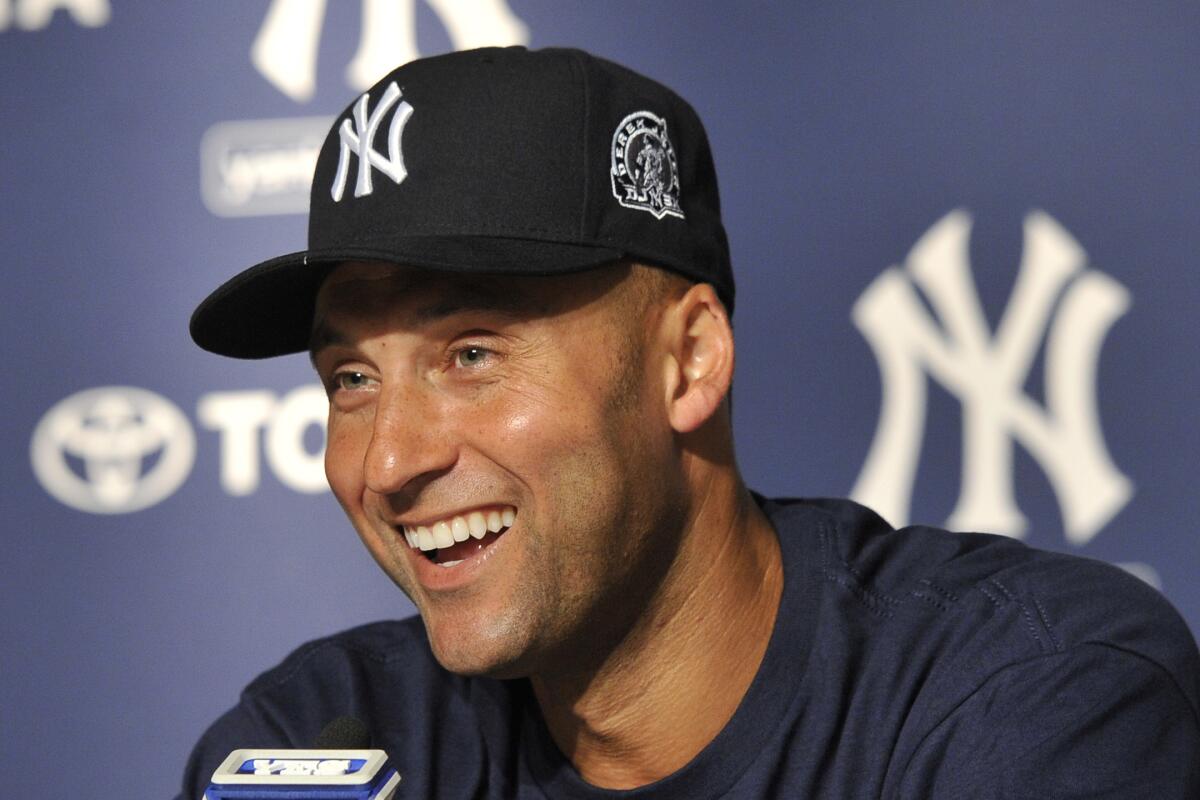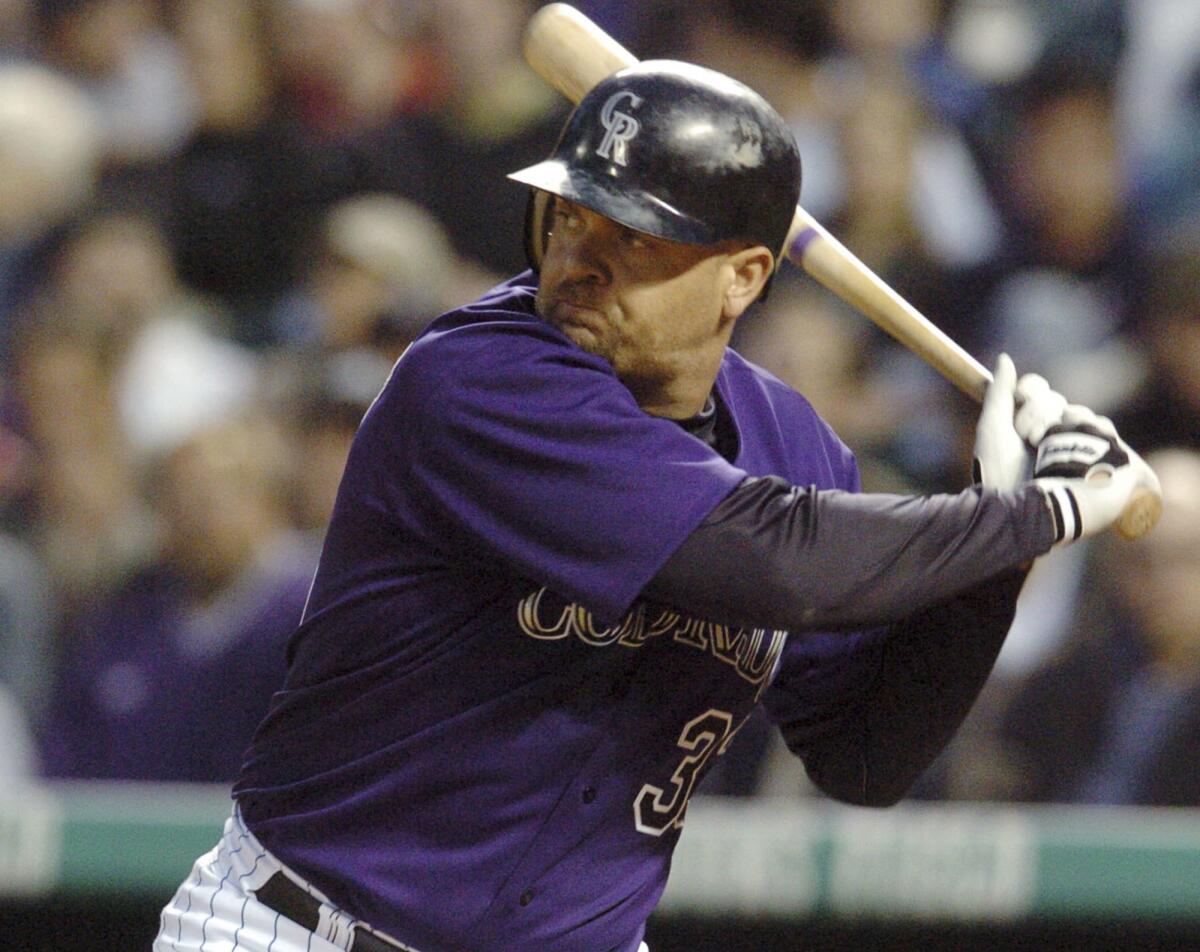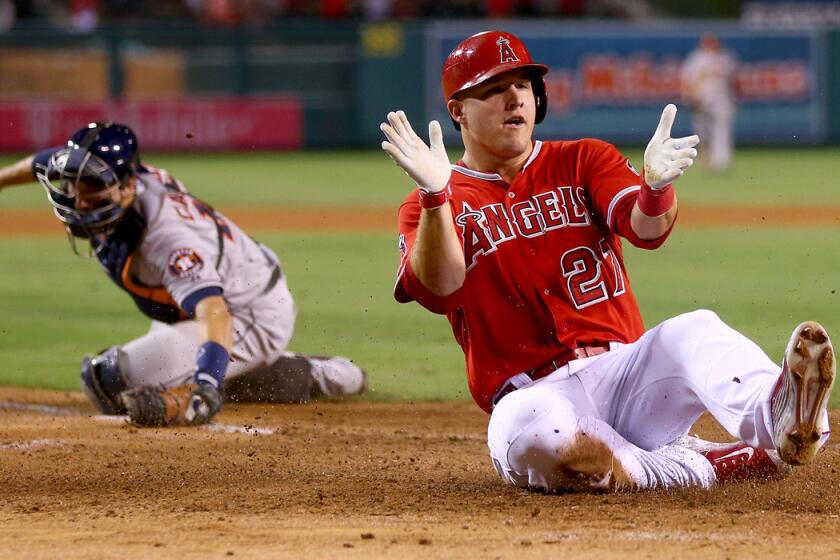News Analysis: Derek Jeter and Larry Walker are elected to Hall of Fame, but Barry Bonds and Roger Clemens might never get in

Last week in baseball: Scandal!
The Houston Astros cheated! The reputations of Jose Altuve and Alex Bregman, the Astros’ brightest stars: tainted!
This week in baseball should have offered a respite from scandal, a celebration of Derek Jeter’s selection to the Hall of Fame, and of Larry Walker’s election as the first Canadian-born position player in Cooperstown.
Yet, Tuesday’s announcement of this year’s election results reminds us of the coming day of reckoning for baseball’s last great scandal. If Barry Bonds and Roger Clemens are not elected next year, the Hall of Fame could be looking at another induction day without any living inductees.
And that would set up one last decision day for voters. If Bonds and Clemens are not elected in 2021 or 2022, their time on the ballot is up, and the Hall of Fame might well exist in perpetuity without baseball’s all-time home run leader and only seven-time Cy Young Award winner among its membership.
Two council members co-sponsored resolution to convince MLB to give L.A. 2017 and 2018 World Series titles
Jeter fell one vote short of joining New York Yankees teammate Mariano Rivera as the only unanimous selection. Jeter got 99.7% and Walker 76.6%, the only two players to top the required 75% in the Baseball Writers’ Assn. of America voting.
In his first seven years on the ballot, Walker never got even 25% of the vote. But campaigns on his behalf — driven by analytics and amplified by social media — compelled voters to give Walker a second look. Edgar Martinez got in on his last try too, thanks to a similar campaign.
Walker did not get a majority of votes until his ninth year on the ballot. Martinez did not get a majority until his eighth year.
Bonds and Clemens rose above 50% in their fifth year, but not because of a campaign. No voter needs a second look, or an analytical reflection, at the numbers Bonds and Clemens put up. On numbers alone, the two would have been first-ballot locks.
In 2013, in their first year on the ballot, Bonds got 36% of the vote, Clemens 38%. The BBWAA elected no one.
The annual ceremony at Cooperstown, N.Y., that summer was small and sad, with no living inductees for the first time since 1960. A committee had elected three honorees from what it called the “preintegration era,” but all three inductees had been dead for at least 74 years.
There are no first-ballot locks next year. The best players appearing on the ballot for the first time include Mark Buehrle, Tim Hudson, Torii Hunter and Barry Zito. Of the players that did not win election this year, Curt Schilling got 70% of the vote and could be selected next year.
And the historical review committees set to meet next year are charged with considering candidates that made their greatest contribution to baseball from 1871 to 1969. Among the leading candidates — each of whom has been rejected in previous BBWAA and committee voting — are Tony Oliva and Maury Wills. Oliva would be 83 on the day of induction. Wills would be 88.
These are the committees that would consider Bonds and Clemens if the BBWAA does not elect them. These are the committees that elected Bud Selig on his first try and Marvin Miller on his eighth try, and only after his death. The baseball establishment dominates those committees. It is little surprise they elected a commissioner on his first try and waited for Miller, who successfully challenged the assumption that teams should control the entirety of a player’s career, to die before electing him.

The establishment is no more sympathetic to steroid cheats than to a powerful union leader. The notion that a committee would elect Bonds and Clemens is, in the literal sense of the word, unbelievable.
That leaves Bonds and Clemens with two last, best chances for election.
In 2016, after the Hall of Fame purged the electorate of writers that had not covered baseball within the previous 10 years, Bonds and Clemens jumped in the voting. In 2017, after Selig was elected, some writers decided it made no sense for the Hall of Fame to include the commissioner of the steroid era but not the greatest stars of the steroid era, and Bonds and Clemens again jumped in the voting.
But those jumps only got them above 50%. No external events have triggered a similar jump since then, and the increases have been incremental. For Bonds: 54% in 2017, 56% in 2018, 59% in 2019 and 61% in 2020. For Clemens: 54% in 2017, 57% in 2018, 60% in 2019 and 61% in 2020.
At that rate, neither will reach the 75% required for election.
Among the hundreds of writers that vote, there appears to be a core that punts on Bonds and Clemens every year, aware that the two players have more than enough support to stay on the ballot, wondering whether some unexpected disclosure or legal development might provide more clarity with regard to the steroid era.
That was a defensible stance in 2013. The time for waiting, for whatever information might make for a more informed vote, is over.
From the sublime to the ridiculous: MLB commissioner is releasing official denials of unsubstantiated allegations started by unverified social media accounts.
There is only one question now: Should the Hall of Fame exclude the only player to win seven most-valuable-player awards and the only pitcher to win seven Cy Young awards?
If the answer is yes, and if Bonds and Clemens are deprived of induction because voters regarded them as cheaters, that would be their lasting penalty. Neither player ever was suspended. Neither was stripped of awards. There is no asterisk by their entries in the record book.
If your name is Jose Altuve or Alex Bregman, that would not be a comforting precedent.
More to Read
Go beyond the scoreboard
Get the latest on L.A.'s teams in the daily Sports Report newsletter.
You may occasionally receive promotional content from the Los Angeles Times.













